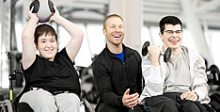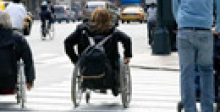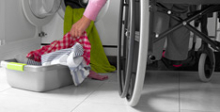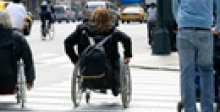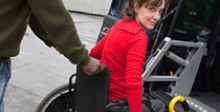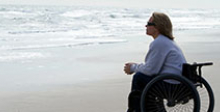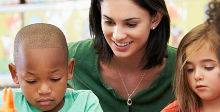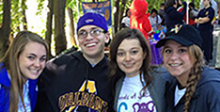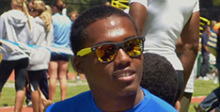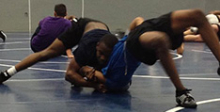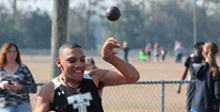
TRANSITION
Like all young people, children with cerebral palsy face many transitions. But, how these stages of growth and development take place can involve developing confidence and helping them cope, to preparing them for independent living and instilling life skills. Help your child prepare for adulthood.
Have questions? Need guidance?
Call (800) 692-4453 today! for MyChild™ Call Center Assistance. Learn more.
Helpful suggestions:
- Begin life lessons as early as the toddler stage.
- Find ways to accommodate, adapt or modify to participate, include and accomplish.
- Socialize early, and develop healthy relationships. Refer to Erikson’s Eight Stages of Psychosocial Development for a guide.
- Optimize ability to be mobile.
- Optimize ability to communicate.
- Take advantage of the special education opportunities to the fullest extent; in adulthood these opportunities reportedly aren’t as readily available.
- Transition from Supplemental Security Income, or SSI, to Social Security Disability Insurance, or SSDI.
- Work with the school system to transition child appropriately through all stages of the education process, including the transition into adulthood phase that generally starts at the age of 16.
- Prepare for independence and self-sufficiency to the greatest extent possible.
- Develop life and coping skills.
- Consider occupational therapy to develop strategies to accomplish feats that seem challenging or for tasks that allow the young adult to participate in areas of interest or employ.
- Participate in workforce development programs to assess abilities, career plan, skill train, and job hunt.
- Learn trade skills.
- Consider college.
- Obtain adapted driver’s license, or learn to navigate the transportation system.
- Consider personal care assistance, home health care support or service animals.
- Plan for housing or rental needs.
- Master money management, bill payment, banking and budgeting.




